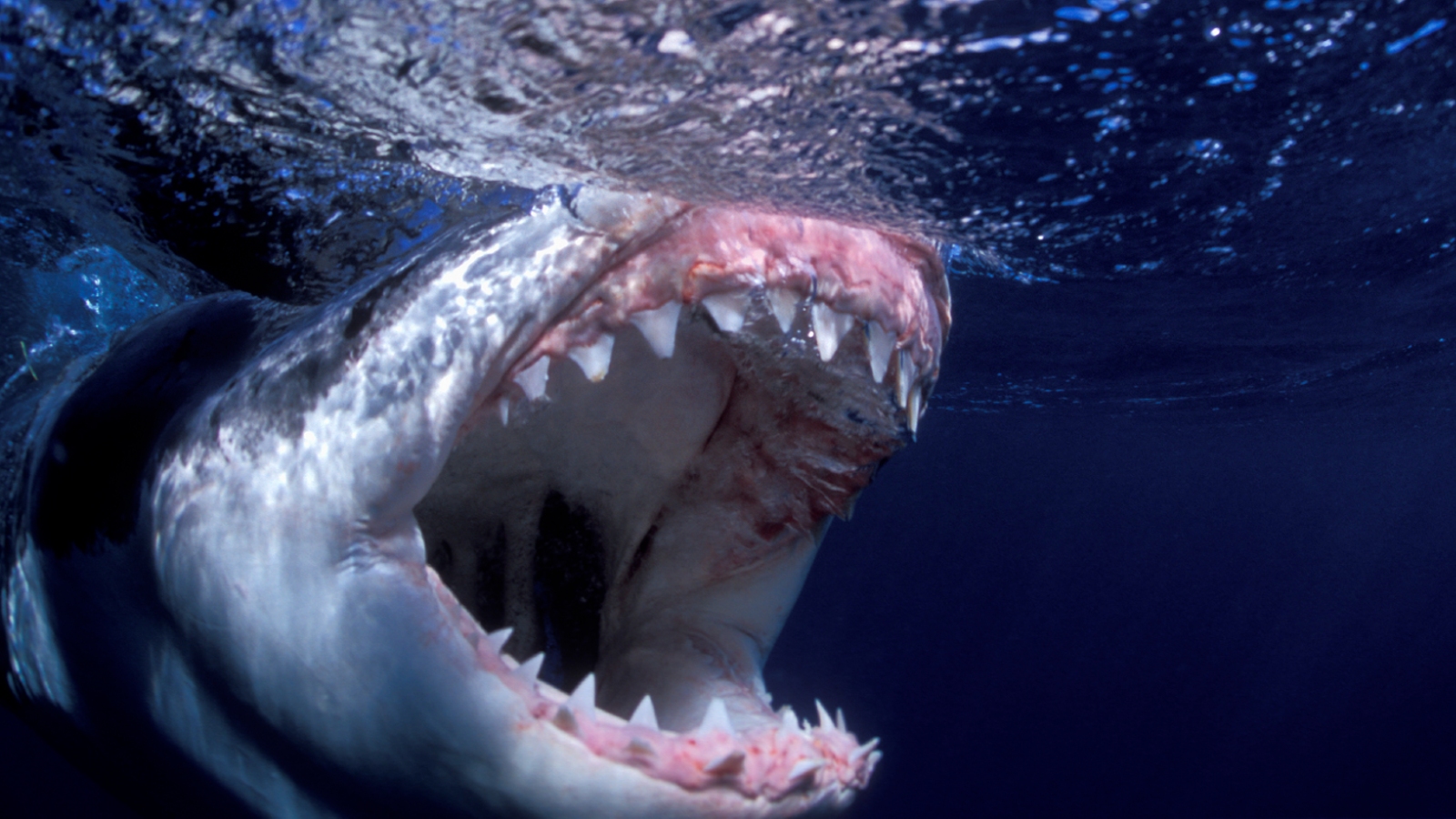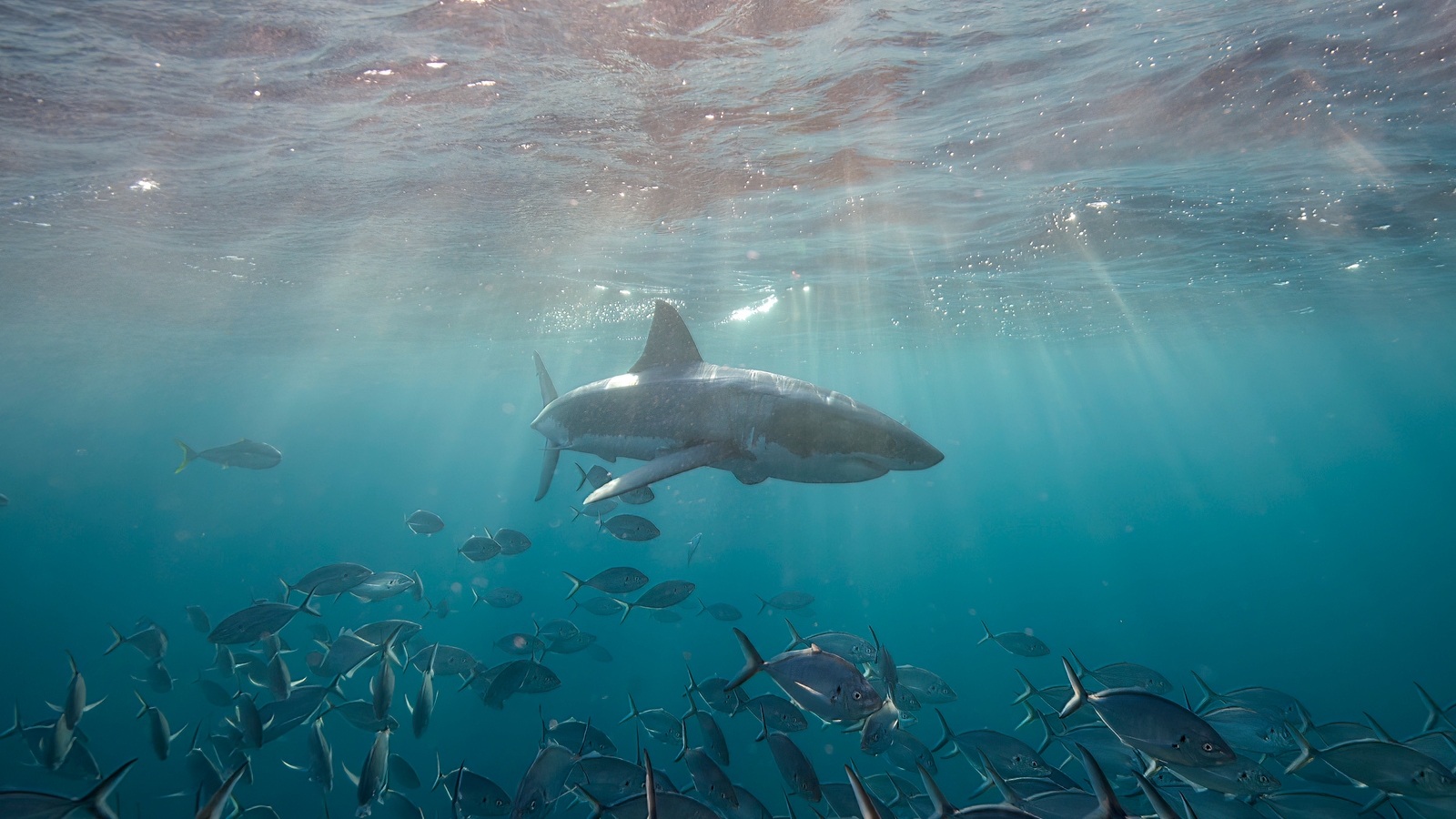'Unnerving' rise in fatal shark attacks recorded last year. Should we be worried?
The number of unprovoked shark attacks spiked slightly last year, while the number of fatal bites doubled compared with the previous year. However, the statistics are not as concerning as they initially sound, experts say.

The number of unprovoked shark attacks spiked slightly across the globe last year, with a high percentage being fatal, a new report reveals. However, these statistics do not indicate that shark attacks are becoming more common, experts say.
In 2023, there were 69 unprovoked shark attacks recorded worldwide where humans did nothing to deliberately initiate the attack — 10 of which were fatal, according to an annual report by the International Shark Attack File (ISAF), which is coordinated by the Florida Museum of Natural History.
The number of attacks is slightly up on the average of 63 unprovoked attacks per year during the previous five years (2018 to 2022), and the number of fatal incidents was double the number from 2022, when five people were killed.
The number of fatalities "are a bit unnerving this year," Gavin Naylor, a marine biologist at the University of Florida who runs ISAF, said in a statement. However, the number of bites is still within the normal range and does not represent a major change in shark behavior, he added.
Just over half of last year's unprovoked incidents occurred in U.S. waters, with the highest number of bites (16) in Florida. There were two fatal attacks in the U.S. — one in Hawaii and another in California. Meanwhile, Australia had the highest number of fatal attacks (4) despite recording only 22% of global attacks.
Surfers, swimmers and snorkelers were by far the most likely people to be attacked, accounting for a combined 94% of unprovoked attacks. Most bites were from three shark species; bull sharks (Carcharhinus leucas), tiger sharks (Galeocerdo cuvier) and great white sharks (Carcharodon carcharias).
Related: What is the deadliest shark attack ever recorded?
Sign up for the Live Science daily newsletter now
Get the world’s most fascinating discoveries delivered straight to your inbox.

While these attacks are classified as unprovoked, it does not necessarily mean that the sharks deliberately attacked or killed humans. A large percentage of attacks are caused by mistaken identity when sharks confuse humans with seals or sea lions. When this happens, sharks normally only take a single bite before realizing their mistake. But when they have such a large and powerful bite, this can be enough to make someone bleed out.
The ISAF also reported 22 provoked bites, which occurred when humans either intentionally or unintentionally did something to trigger an attack, such as spearfishing or catching sharks in nets. However, the report does not state how many of the provoked attacks were fatal.
In one of the most unusual and gruesome shark attacks from 2023, a great white shark bit and decapitated a scuba diver who was fishing for shellfish in Mexico. This incident, which was pretty much unheard of among shark scientists, is classified as a provoked attack because the victim's activities could have inadvertently caused the shark to attack.

Comparing bite statistics year-on-year is not a very accurate way of assessing long-term trends in shark attacks, experts warned. For example, last year's number of lethal bites was double the total from 2022 but the same as the number from 2021 and only one more than 2020's total. So although the number of deaths increased this year, it is not an unusually high number.
When scientists look at more long-term trends, the number of reported shark bites has more than doubled over the past three decades. However, this is mainly because there are more people in the water and there is a greater emphasis on people reporting non-lethal shark bites due to wider public interest in these attacks thanks to shark movies like "Jaws," Naylor said.
Overall, the chance of getting killed by a shark is 1 in 4.3 million, according to the ISAF. In comparison, the chance of being killed by lightning is 1 in 80,000, and the odds of being killed by fireworks are 1 in 340,000.
On the other hand, humans kill around 80 million sharks every year, around 25 million of which belong to threatened species.

Harry is a U.K.-based senior staff writer at Live Science. He studied marine biology at the University of Exeter before training to become a journalist. He covers a wide range of topics including space exploration, planetary science, space weather, climate change, animal behavior and paleontology. His recent work on the solar maximum won "best space submission" at the 2024 Aerospace Media Awards and was shortlisted in the "top scoop" category at the NCTJ Awards for Excellence in 2023. He also writes Live Science's weekly Earth from space series.









